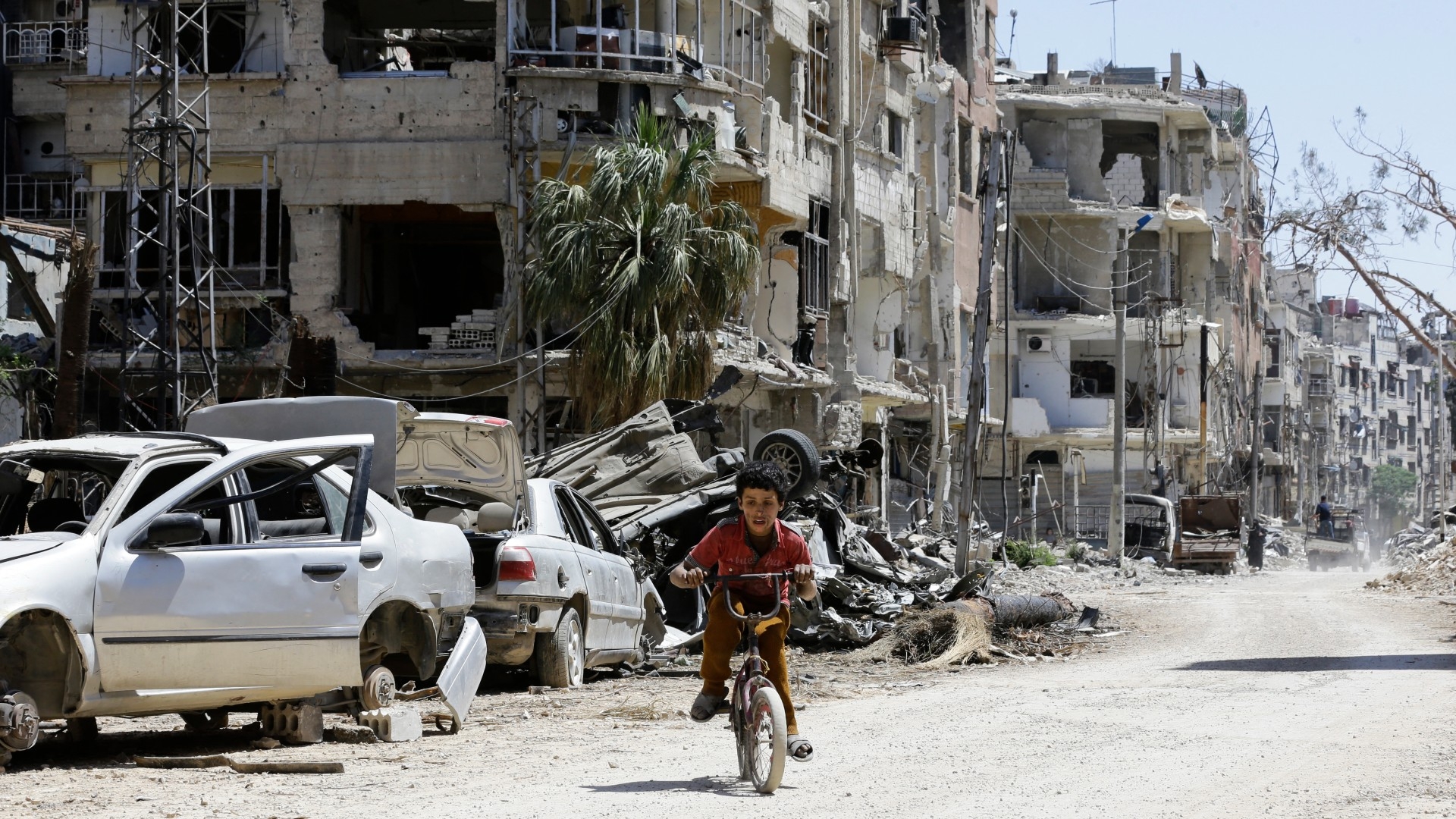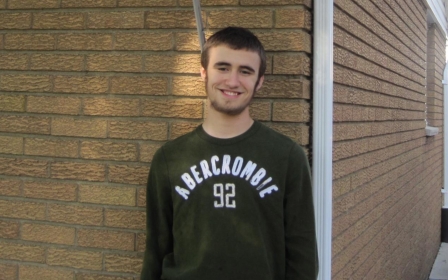Syria carried out 2018 chlorine attack on Douma, OPCW finds

Syrian forces were the perpetrators of a chlorine attack on the city of Douma in April 2018, a two year investigation by the global chemical weapons watchdog concluded on Friday.
The Hague-based Organisation for the Prohibition of Chemical Weapons (OPCW) found that at least one Syrian military helicopter, belonging to the Tiger Forces elite unit, “dropped two yellow cylinders containing toxic chlorine gas on two apartment buildings in a civilian-inhabited area in Douma”.
The attack on 7 April 2018 killed 43 people and affected dozens more, according to the OPCW.
It was part of a major offensive by President Bashar al-Assad’s government, backed by Russia, in which it successfully retook the area on the outskirts of Damascus from rebel forces.
The investigation, which was conducted between January 2021 and December 2022 by the watchdog’s Investigation and Identification Team (IIT), examined 70 environmental and biomedical samples, 66 witness accounts, and other data including satellite imagery and forensic analysis.
New MEE newsletter: Jerusalem Dispatch
Sign up to get the latest insights and analysis on Israel-Palestine, alongside Turkey Unpacked and other MEE newsletters
A previous probe by the watchdog in March 2019 concluded that chemical weapons had been used in the attack, but did not have the mandate to assign responsibility.
The Syrian government rejected the findings at the time, and along with Moscow, refused to cooperate with the latest probe.
‘The world now knows the facts’
The OPCW has investigated multiple chemical attacks during the eight-year Syrian civil war and has previously confirmed the use of "chlorine, sulphur mustard, and sarin as chemical weapons" in other incidents.
Damascus has long denied using chemical weapons and claimed that rescue workers belonging to the White Helmets had “staged” the Douma attack.
The chemical weapons watchdog tested the validity of that scenario, among others, but reached the conclusion on the basis of “reasonable grounds” that Syrian forces had perpetrated it.
“The IIT was unable to identify any reliable information…supporting the allegations of ‘staging’ by armed groups or other entities, or corroborating that any of the required ‘staging’ actions were performed at either location,” the report stated.
The attack in Douma prompted air strikes on Syrian government targets by the US, UK, and France days later.
“The use of chemical weapons in Douma - and anywhere - is unacceptable and a breach of international law,” said Fernando Arias, OPCW’s director-general.
“The world now knows the facts - it is up to the international community to take action, at the OPCW and beyond.”
Middle East Eye delivers independent and unrivalled coverage and analysis of the Middle East, North Africa and beyond. To learn more about republishing this content and the associated fees, please fill out this form. More about MEE can be found here.




